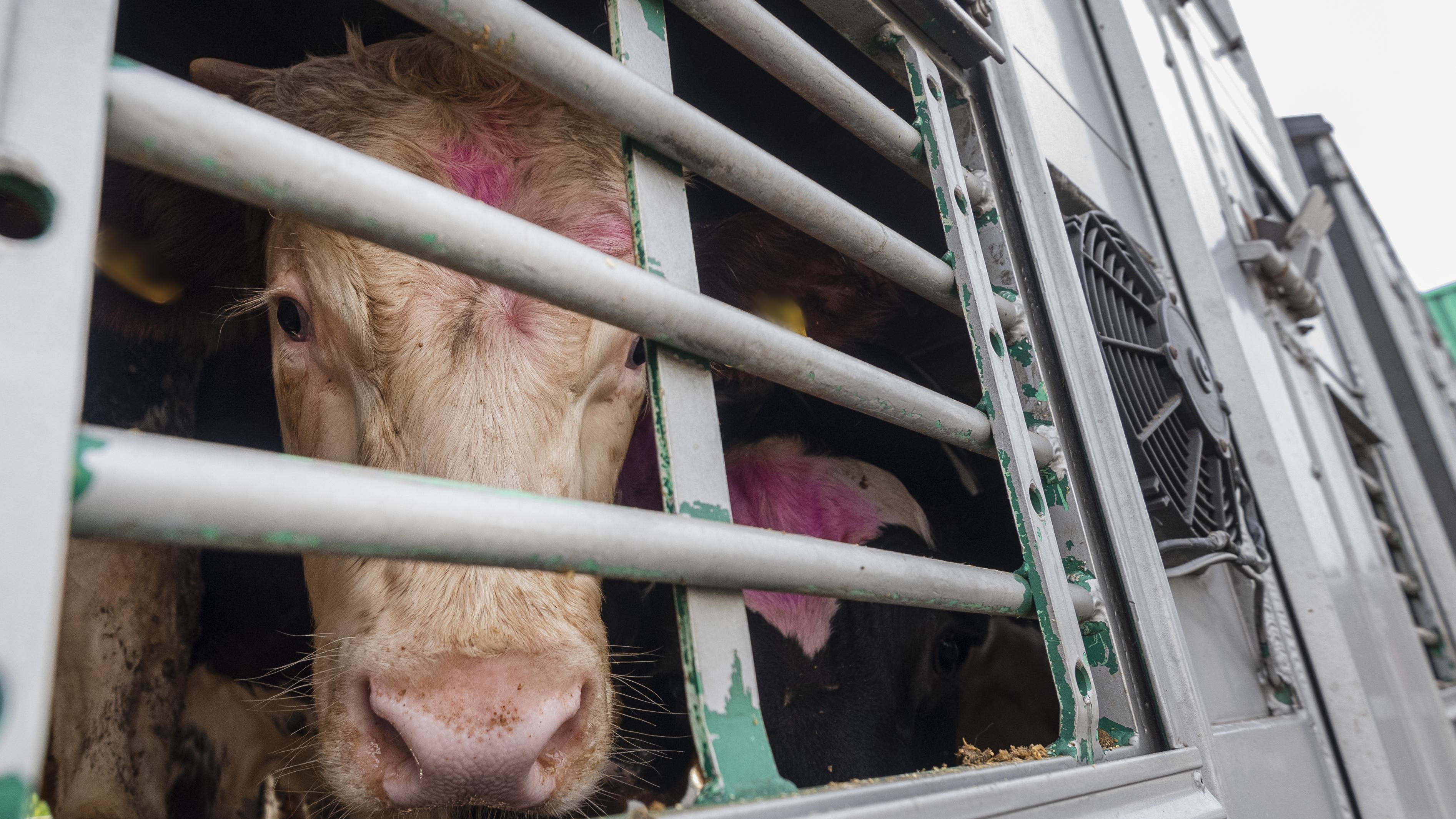Every year, over 1.5 billion poultry and 46 million live cattle, pigs, sheep, goats and horses are transported across borders within the EU and to third countries. Many endure exhausting journeys lasting days or even weeks. All under outdated laws that offer little protection.
Now, there's a critical window for change: the European Union is revising its animal transport legislation for the first time in decades. But the current proposal lacks ambition and could even weaken protections further.
Sign our petition to demand change and ensure animals will no longer suffer unnecessarily.
What's wrong with current animal transport rules?
- Pigs can be transported for 24 hours without a break and cattle for 29 hours, including a one-hour break.
- There are no strict journey limits, allowing animals to be transported for days or even weeks.
- Inadequate transport conditions frequently cause extreme suffering, injuries, or even death.
- Pregnant cows sold as breeding animals are transported over thousands of kilometres. Premature births often occur during these journeys, and once milked for a short time, the cows are slaughtered in conditions that violate both EU and international welfare standards.
And these are just some of the many serious issues animals face during transport.
Real tragedies are happening:
In October 2024, 116 cattle were stuck inside trucks at the Bulgarian-Turkish border for weeks. Those that survived the horrific conditions, were later killed at a slaughterhouse in Turkey. Early 2025, almost 3000 cattle and sheep left Romania to Israel and due to vessel deficiencies, were forced to endure a trip three times longer than the planned. The animals that survived arrived in awful condition, many covered in faeces. Incidents involving live animal transport are constant both by road and by sea. However, the EU continues to allow such practices.
The lack of controls and penalties is a systematic violation of the already lax EU regulation on live animal transport (Regulation 1/2005) on the protection of animals during transport. The few breaks and stocking density of vehicles are continuously disregarded.
Immediate measures and a change in the law are necessary to protect the animals!
Why now?
In December 2023, the European Commission proposed a new regulation on the protection of animals during transport. This text sorely lacks ambition and, as it stands, does not address animal welfare issues. The revised text is now in the hands of the European Parliament and Member States. Unfortunately, the majority of the proposals made by the two co-legislators aim to further weaken the protection of animals during transport. But we are not giving up, as the legislative process is far from over! Now more than ever, we need your voice to show that the public is calling for an ambitious text and support our demands to improve animal protection.
Our demands:
- A ban on long-distance transport of live animals to third countries
- A ban on transport by sea
- The dissolution (termination) of all existing agreements on the export of live animals to third countries
- A limitation of the transport duration of live animals to a maximum of 8 hours (4 hours for poultry and rabbits)
- A ban on transporting unweaned animals that are dependent on a milk diet
- Slaughter of animals at the nearest appropriate slaughterhouse
- Strengthening of controls on live animal transports
- More effective sanctions in case of infringement
- A prohibition of transport if expected external temperatures are below 5 or above 25 degrees Celsius
- Transport of meat instead of live animals
- Transport of semen instead of breeding animals

